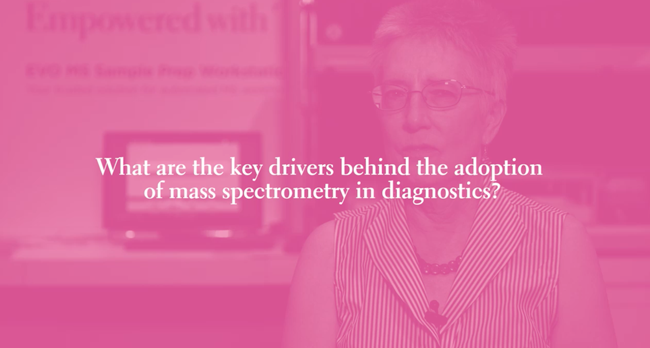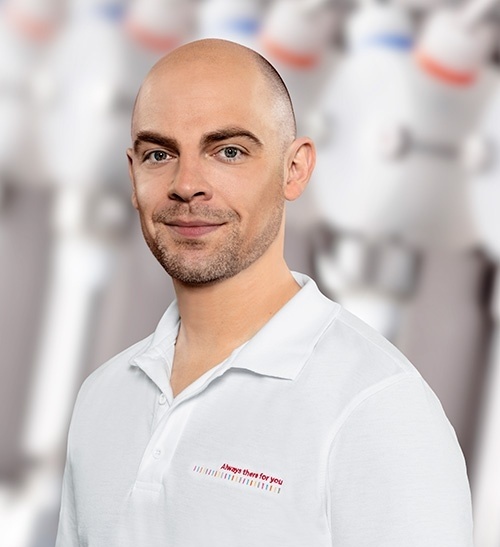Keywords:
Tecan uses cookies to improve our website. By continuing to browse our website, you accept our cookie policy.
Tecan uses cookies to improve our website. By continuing to browse our website, you accept our cookie policy.

Keywords:
By Manuel Bauer
While MS has been around for over a century, the addition of liquid chromatography-mass spectrometry (LC-MS) in clinical testing laboratories has only become feasible in the last 15 to 20 years. Judith Stone, Senior CLS Specialist, shares her experience with implementing LC-MS in the clinical diagnostics lab. Judith examines what drives adoption of LC-MS in the diagnostic lab, effective operation with scale and cost pressure (in other words…how to still make some money on testing), the importance of automated liquid sample handling, and increasing FDA oversight on laboratory developed tests (LDTs).

The decision to add LC-MS to the testing instrumentation line up is not one that most clinical labs take lightly. With the overall goal of the lab to increase productivity and lower costs, the installation of mass spectrometry comes with well-known hurdles including the presumed difficulty of use and the upfront investment expense. Judith describes a successful approach of having vendors work together to maintain effective lab operations.
It is critical to ensure that you align the selected LC-MS vendor with the automated sample handling vendor, such as Tecan and the Freedom EVO liquid handling platform. Judith comments:
I think that Dan Holmes laboratory up in Vancouver is a great example (Dan Holmes, MD, Division Head, Clinical Chemistry, St. Paul’s Hospital). They actually bought both at the same time and they took off like a rocket in terms of what they were able to do.
Liquid handling vendors, such as Tecan partner with the mass spec vendors to provide an optimized package to facilitate start up.
Judith goes on to address the importance of automation when considering questions of scale and cost pressure. The need to automate becomes a critical solution for sample preparation for the mass spectrometer in order to overcome sample preparation bottlenecks that develop as test volumes increase. In particular, the management of laboratory information is a critical component that vendors working together helps to address.
With an increasing attention given to Food and Drug Administration (FDA) oversight of MS Laboratory Developed Tests (LDTs), Judith stresses the importance of applying and maintaining Good Lab Practices (GLP).
She describes minimizing regulatory pressures …
To me, I think the thing to do is to say, ‘What is good laboratory practice?’, ‘What should I be doing?’ and ‘How can I do that in my mass spectrometer lab?’
She once again stresses the need to work with vendors, as well as others in the clinical industry, to approach this increased attention with a positive frame of mind to ensure quality test results.
This video is a must-watch for anyone thinking of adding LC-MS and sample handling automation to their laboratory, including medical, clinical or diagnostic lab directors, lab managers, scientists, purchasers, executives and regulatory personnel.
Discover the value that a fully integrated, automated liquid handling system can bring to your lab. Watch the video now.

Dr. Manuel Bauer joined Tecan Switzerland in 2013 and is responsible as Senior Market & Product Manager for Tecan's automated MS sample preparation offering and the Tecan D300e digital dispenser. He studied Biology at the University of Würzburg and Free University of Berlin. During his PhD at the ETH Zürich he focused on systems biology, and has also applied various MS-based proteomics techniques during his post doc at the Biozentrum Basel.